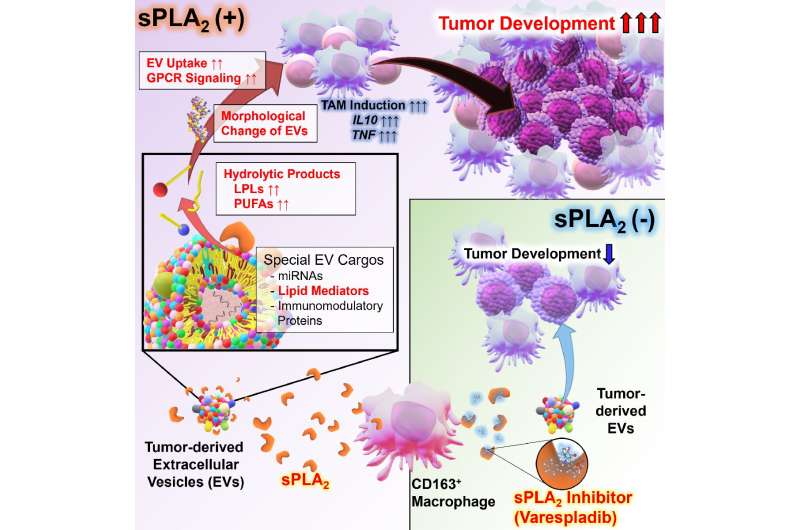New oncogenic mechanisms in lymphoma identified via extracellular vesicles


Japanese collaborative research teams have discovered new mechanisms of action by extracellular vesicles (EV) for the development and malignant progression of lymphomas.
Professor Ai Kotani and Kai Kudo, a graduate student, at the Tokai University has been investigating the roles of EV in the development of Epstein-Barr virus (EBV)-positive B-cell malignant lymphomas, but the mechanism of its action has not been fully clarified. Meanwhile, Professor Makoto Murakami and Yoshimi Miki researcher at the University of Tokyo has been clarifying a number of vital phenomena to which secretory phospholipase A2 (sPLA2) is involved. sPLA2 is a phospholipid-degrading enzyme existing in the extracellular environment; however, the source of the phospholipids that sPLA2 uses as a substrate outside cells has been unknown.
In this study, the research groups demonstrated that sPLA2 secreted from tumor-associated macrophage (TAM) in malignant lymphoma tissue degrades phospholipid of EV derived from tumor cells. They also found that this degradation dramatically improves EV function, such as ease of cellular uptake and immunosuppressive effect, and induction of various vital phenomena. Moreover, they discovered that lysophospholipids, degraded products of EV phospholipids, transmit signals to cells, namely, novel mechanisms of action that have not been known in EV biology. Using model mice that reproduce the development of lymphomas in humans, the research groups demonstrated that EV-degradation by sPLA2 is essential for tumorigenesis. Analysis of samples from patients with lymphoma also showed that sPLA2 is involved in tumorigenesis and malignant progression.
Source: Read Full Article